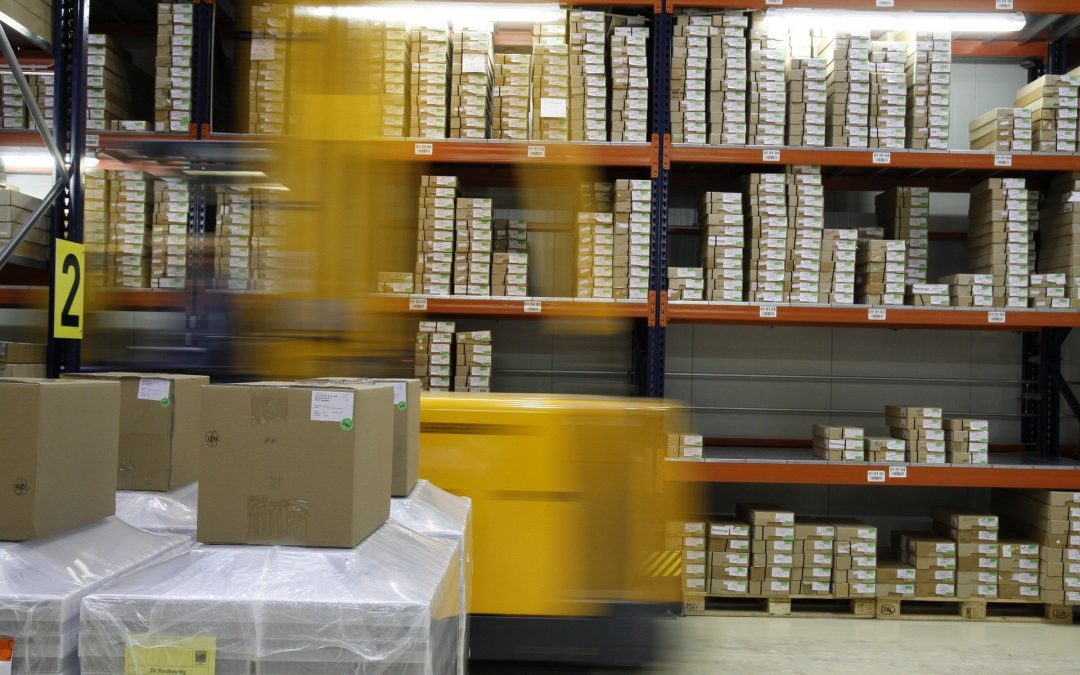Your inventory consists of the goods that your company handles and intends to sell, along with the raw materials that are used to produce them. Inventory management refers to the process and systems you use to track your goods throughout your supply chain. Managing your inventory successfully could make a huge difference to your business, so it’s important to understand everything you need to know about company inventory management.
What Are The Different Types of Inventory
There are different types of inventory that business owners should get to know in order to better plan, manage and meet the demand of their customers. These different inventory types can be broken down into four main categories.
Raw Materials
Raw materials are the individual resources you might use to produce a finished product. For example, if you sell cakes and baked goods, your raw materials would probably include sugar, flour, eggs and butter.
Work-In-Progress
Work in progress inventory also refers to retailers that manufacture their own products. Usually, these are products that are unfinished or components that are currently in production but not yet for sale.
Finished Goods
As the name indicates, finished goods inventory is made up of any complete products that are now ready to be marketed and sold. Using the cake example, a cake that’s been baked, decorated, and boxed would be your finished product.
Maintenance, Repair and Overhaul
Also known as MRO goods, this term refers to the items that are used to maintain the production process, but these items would not be a part of the finished product. Some good examples of MRO are packing materials, tools, gloves, and office stationery.
Inventory VS Assets: What’s the Difference?
Although they sound very similar, assets and inventory are actually two different things. An asset includes equipment, fixtures, furniture, and anything that is either cash or cash equivalent and can be sold to put money back into the company. Inventory, on the other hand, includes goods and items that a business holds and plans to sell for profit.
Why is Inventory Management Important?
Inventory management should be considered an incredibly important aspect of your business. When managed correctly, a properly managed inventory saves time and money and leads to better customer satisfaction, securing your business in the long run. It also allows you to accurately plan and forecast your stock levels, helping you prevent product shortages and make profitable business decisions.
What are the Advantages of Inventory Management?
There are numerous benefits to managing inventory correctly, and these benefits can really make a difference to the overall success of your company. A good inventory management strategy can:
Bring Higher Customer Satisfaction
Good inventory management creates high customer satisfaction, which allows you to retain more customers. Speedy processes, organised supply chain management, and great delivery times are just some of the inventory management by-products that will keep your customers coming back to your business.
Keep Your Warehouse Organised
If you don’t think that keeping a well-organised warehouse could make a difference to the success of your business, you would be wrong. An organised warehouse could help make the order fulfilment process quicker and more efficient, reduce costly breakages, give a good impression of the supply chain process and increase revenue potential.
Save Money and Time
Effective inventory management may allow you to save a lot of time and money by reducing the amount of unnecessary inventory held in your warehouse. If you are not selling much of a particular product, reducing this stock in your warehouse would help free up space for an item you’re more likely to sell. You could also end up saving time for your employees, as more accurate inventory record-keeping would enhance productivity and speed up supply chain processes.
Why You Should Consider Inventory Management Software
We’ve already touched upon the benefits of good inventory management, but if you add an advanced inventory management system to your supply chain processes, you’ll see those benefits increase exponentially. With a top-of-the-line inventory management system, you’ll be able to understand inventory levels across the whole of your business, gain greater visibility with real-time data and even optimise all of your current inventory, ensuring you never have too much or too little on hand.
Automated Inventory Management Systems and the Future
An effective inventory management system could help future-proof your business. With data-driven insights provided by your inventory management system, you could make informed decisions about stock, predict demand and lead-time, and even gain insights into trends to improve forecasting. Adopting a good inventory management system could also help ensure that you continuously outshine your competitors.
Gain better insights into your business with advanced inventory management software by contacting THINK Inventory Solutions today.
Are you worried that a warehouse management solution will be too expensive, or that you will be trapped in a long contract? To arrange a demo or discuss your requirements, give THINK a call on 0330 350 0715, email enquiries@tkinv.com or complete the Quick Quote form below. We can work with your business to help save you money and drive down costs.


Recent Comments